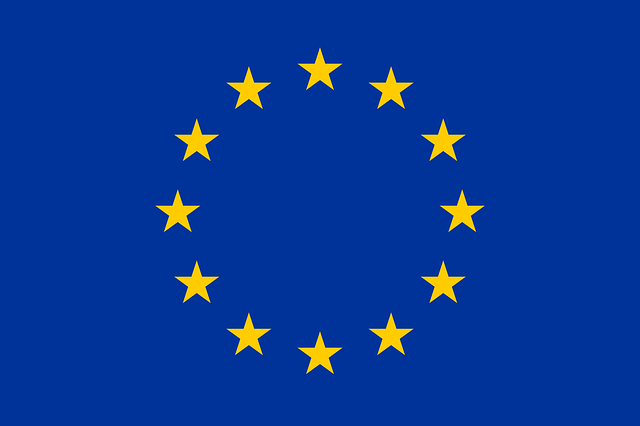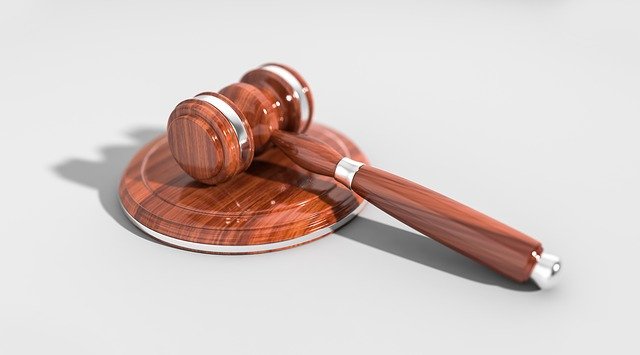– General aspects:
The conviction for crime chiefly has three consequences for those who have committed it: they will be punished either with imprisonment, the payment of a fine, a community service, or permanent location; they have to repair the damage caused to the victims of the crime; and they will be deprived of the goods and benefits derived from the crime, and of the tools which were utilized for its commission. The third consequence is what is known as a confiscation, and has the aim of impeding that a criminal may benefit from the commission of a crime.
In Spain the confiscation is regulated mainly in the Spanish Criminal Code (in Spanish Código Penal, henceforth CP), though the Spanish Criminal Procedure Act (in Spanish Ley de Enjuiciamiento Criminal, henceforth LECrim) plays also an important role complementing from the point of view of a criminal procedure how the confiscations of these goods related with the commission of a crime works. Both laws were reformed through the Directive 2014/42/EU on the freezing and confiscation of instrumentalities and proceeds of crime in the European Union, which sought to harmonize the regulation of the confiscation in the different countries members of the European Union. Such Directive 2014/42/UE was transposed to the Spanish legal system by means of two laws, the Law 41/2015 which reformed the LECrim introducing a new title into the Book IV where are regulated the special procedures, a title which is the object of this writing, and the Organic Law 1/2015 which adapted the CP with a broad regulation of the confiscation and all its variables, the extended confiscation (art. 127 bis), the autonomous confiscation (art. 127 ter), the confiscation from a third party (art. 127 quater) and the extended confiscation for criminal reiteration (art. 127 quinquies and sexies).

The confiscation is defined in the art. 2.4) of the Directive 2014/42/UE as, “a final deprivation of property ordered by a court in relation to a criminal offence”. From this definition we can extract its more important feature, it is the definitive privation of a good by a court on account of its relation with a criminal offence. Such privation of property by a court, usually will be agreed in the unappealable judgment which convicts the owner of the property confiscated, either for being effects which derive from the crime, for being goods, means or tools which have served for the preparation or the commission of the crime, or for being profits coming from the crime, whatever may be the transformations which such profits may have suffered (art. 127 LECrim). In fact, if instead of a judgement of conviction the court chooses to acquit the accused, the confiscation of the goods cannot be agreed, since it would be groundless, as the SAN 4010/2020 recall to us: “On the contrary, when in the criminal procedure ends with a judgment of acquittal or an equivalent resolution, with effect of res judicata, the confiscation in the criminal procedure is groundless, since there no longer exists the conditions under with it can be agreed.” When this sentence talks about an equivalent resolution with the effect of res judicata, it is referring to the acquittal on all charges (art. 637 LECrim). We have said usually, because the confiscation of the goods related with the commission of a crime may be agreed not in an unappealable judgment declaring the accused as liable of a crime, but in an autonomous procedure which has as it only object the confiscation of such goods, therefore of an imminent civil nature. This is the procedure known as the procedure of autonomous confiscation, introduced in the LECrim by the Law 41/2015, and which only two causes can justify: when the public prosecutor has only asked for the confiscation of goods in its writing of accusation, reserving for this procedure their specification (art. 803 ter e 2. a); and when either the supposed criminal has died, cannot be found or suffers a mental or physical handicap (art. 803 ter e 2 b). To the latter case, we have to add what is said in the art. 127 ter of the CP, which is not entirely equal to the art. 803 ter e 2 LECrim, the procedure of autonomous confiscation can be agree also when the accused is exempted of criminal liability or it has expired (art. 127 ter 1 c), besides, the confiscation can only be directed against who has been formally accused or against who has been indicted because there exit rational evidences signaling to him (art. 127 ter 2). A person will be formally accused when he appears in the prosecution’s provisional writings of accusation (art. 650 LECrim), and will be indicted when he has given an account of the facts attributed to him according to the rules of the article 775 LECrim or has been committed for trial (art. 384 LECrim).
Therefore, usually the confiscation of the goods will be agreed in the firm sentence which convicts the accused, though it can be either agreed in an autonomous procedure when the requisites of the article 803 ter e) LECrim and the article 127 ter LECrim are met. But there is more, because the goods confiscated in the unappealable judgment may not pertain to the same person who has been convicted because previously have been transmitted to him by the accused, this is the reason why the LECrim allows the intervention of a third party in such criminal procedure though limited to the aspects directly affecting his goods (art. 803 ter a – art. 803 ter d LECrim, and art. 127 quater CP). A case which can be extended to the procedure of autonomous confiscation.
Another exception to the usual will be the possibility offered by the CP in its art. 128 to the convicted or even to this third party to whom the goods were transmitted. When the goods are of licit commerce and their value has not proportion with the nature or importance of the crime, or the civil liabilities have been completely satisfied, the judge or tribunal may not agree their confiscation of agreed it partially. This is the only escaping door left open by the CP to them, when the rest of the requisites for the confiscation of the goods are met.
Taking into account all what we have seen until this juncture, we finish where we have started, a confiscation has to be agreed in a firm sentence, either when it is agreed in the main criminal procedure, where is decided on the guilt of the accused, or by means of a procedure of autonomous confiscation, either when the confiscation is upon the goods of the convicted or of a third party. Then, what happen with these goods until such sentence is pronounced? The goods which are within the scope of the article 127 CP, may be freezed until then (art. 127.1 octies CP). The freezing of the goods is regarded as a preventive measure, which we cannot confound with the preventive measure envisaged in from article 589 to the art. 614 bis LECrim, since the goal of each of these preventive measures is different. The freezing of the goods of the article 127 octies CP, has as aim to make possible the fulfillment of what is established in the article 127 CP, the confiscation of the goods related with the crime, whereas the bail and seizure of the article 589 to 614 bis have as aim to comply with the pecuniary liabilities derived from the criminal procedure, which are those gathered in the art. 126 CP. Since the freezing of the goods is a preventive measure, it has to fulfill with the requisites which has to comply all preventive measure according to the Spanish jurisprudence: there must exist an appearance of good right (fumus boni iuris), the investigated should have great probabilities of being convicted; there must exist a risk for the delay in the adoption of such preventive measure (periculum in mora), in other words, to wait until the pronouncement of the sentence may make this sentence ineffective; the fulfillment of the principle of proportionality, the measure has to be able of complying with its goal, the measure has to be necessary, for not being other measure more lenient with the same efficacy, and from the measure have to derive more benefits than prejudices for the values in conflict.

To the above we must add that, the Examining Magistrate has assigned the function of ordering to gather “the arms, means, and effects of any class which may have a relation with the crime”, a labour in which is assisted by the Judicial Police (art. 334 LECrim), and that the destiny of the judicial effects, “those goods which either have been putted at judicial disposition, seized or confiscated in the course of a criminal procedure” (art. 367 bis), are regulated from the article 367 bis to the article 367 septies.
– Kinds of confiscation:
As we have said before, is in the CP where is regulated the confiscation and all its variables. In the article 127 there is a definition of it, basically the losing by the criminal of the effects, means and profits derived from the crime.
In the article 127 bis is regulated the extended confiscation, it is termed like that, because it does not affect the effects, means and profits derived from the crime object of conviction, but another goods derived from other crimes. The article 127 bis contains an exhaustive list of these crimes, between them we can stress the human trafficking, organ trafficking, or those relative to the prostitution and sexual exploitation of minors. Besides, the LECrim demands that the Judge or Tribunal must depart from objective evidences in order to determine that the origin of the confiscated goods is illicit, the own article 127.2 bis mentions three of special relevance: 1º The disproportion between the value of the goods and the licit earns of the convicted, 2º The hiding of the ownership or of any power of disposition upon the goods by means of interposed persons or companies, tax heavens or territories where there are no taxes which hide or hinder the determination of the true ownership of them, and 3º The transferring of the goods by operations which hinder their localization or destiny and which are lack of any valid legal or economic justification. The article 127 bis ends with something we have mentioned at the beginning, the confiscation of any good for its relation with the crime, will lose any justification the moment the Judge or Tribunal acquits the accused.
The next kind of confiscation which appears in the CP is the autonomous (art. 127 ter), we have talked about it before. Its name derives from the idea that, it is not mandatory the existence of a conviction resolving who is liable of a crime in order to be agreed the confiscation of the goods related with such crime. For that, the CP establishes three requisites: the illicit origin of the goods must be ascertained in a contradictory procedure, which is the procedure regulated in the from the article 803 ter e to the article 803 u LECrim; the criminal procedure where was going to be decided on the guilt of the accused could not conclude because either, the accused died or suffers a chronic illness which impedes his trial and there exist the risk that the crime may prescribe, the accused cannot be found, or the accused cannot be convicted because he is exempted of criminal liability or it has expired; and, the procedure of autonomous confiscation has to be directed against who has been formally accused or has been indicted. Let´s stop here for a moment, if the procedure of autonomous confiscation has to be directed against those who have been formally accused or indicted, does it mean that it cannot affect the goods acquired by a third party? I am aware that you already know the answer if you have paid attention, because I have given it before. But again, the answer is no, for the example the SAN 2205/2020 argues that: the article 127 quater allows the confiscation of the goods to which are referred the previous articles; the procedure of autonomous confiscation which is regulated in the LECrim says that the third party which affected by the confiscation will be notified in accordance with what is envisaged in the article 803 ter b (art. 803 er j LECrim); and, the Directive 2014/42/UE at the hour of talking of the confiscation of the goods pertaining to a third party, is referring to the goods transmitted to a third party by a suspect or accused, without demanding that he has to be convicted. Therefore, the procedure of autonomous confiscation is applicable to the goods which have been transferred by an accused or suspect to a third party.

The confiscation which affects to the goods acquired by third parties, is the established in the article 127 quater. For the confiscation of these kind of goods, those who have acquired them cannot be a bona fide third party, an exemption which, although is not mentioned in the CP or the LECrim, appears in the Directive 2014/42/UE in its article 6.2, and which will impede the confiscation of the goods acquired by those bona fide third parties even when these goods have an illicit origin. It will be understood that the third party is not a bona fide third party when (art. 127.1 quater CP): he has acquire the effects or profits knowing their illicit origin or when a diligent person would have had motives to suspect their illicit origin; and in the case of other goods, when he has acquired them knowing that by means of this acquisition he would make the confiscation difficult or when a diligent person would have had motives to suspect, in the circumstances of the case, that the acquisition would make the confiscation difficult. Besides, there exists a presumption iuris tantum that the third party has known or had motives to suspect that the goods came from an illicit activity or were transmitted to avoid their confiscation, when the goods or effects were transmitted either without a compensation or for a price inferior to their price in the market.
We have to distinguish the confiscation which affects to the goods of third parties from the liability of the participant in a denominated lucrative transfer established in the art. 122 CP, which says: “Those who by a lucrative transfer have participated in the effects of a crime, are obliged to the restitution of the thing or the compensation of the damage until the amount of their participation”. The article 127 quater and the article 122 are compatible in so far as the participant in a lucrative transfer never assumes a burden for the acquisition of the goods and he is always obliged to their restitution, while the third party affected by a confiscation may avoid the loss of the goods when he proves that he have assumed a burden for their acquisition, trying to show by this way that he is a bona fide third party.
On the contrary, the confiscation of a third party’s goods may coincide with the classification of the money laundering given by the CP (art. 301 CP), since in both cases is demanded that the goods have to be acquired knowing their illicit origin. Besides, the money laundering is also applicable to the cases of grave imprudence, what is the difference between the grave imprudence of the article 301.3 CP and the diligence exigible to a person in order to suspect that the goods had an illicit origin of the the article 127 quater? To me, is not at all clear.
The articles 127 quinquies and sexies regulate the extended confiscation for criminal reiteration. Aside the requisites established in those articles to allow its application, there exist an important different between the extended confiscation for criminal reiteration and the simple extended confiscation of the article 127 bis, while in the former is an option of the Judge or Tribunal, the latter is mandatory, if the requisites of the article 127 bis are met the Judge or Tribunal is obliged to agree it.
– The intervention of third party affected by the confiscation:
What is regulated in the first chapter of the Title III Ter of the Book IV of the LECrim, in reality is not a procedure. In such chapter is established the way the third party to whom the goods have been transmitted, can participate in the criminal procedure where is decided on the guilt of the accused of having committed a crime or crimes.

By his participation is guaranteed that, the person which may be affected my the confiscation participates in the procedure making effective his right to legal protection. A right which is recognized in the art. 8.1 of the Directive 2014/42/UE: “Member States shall take the necessary measures to ensure that the persons affected by the measures provided for under this Directive have the right to an effective remedy and a fair trial in order to uphold their rights.”
The third party participating in the criminal procedure, likewise, has to be assisted by a lawyer (art. 803 ter b) 2 LECrim), another of the guarantees established in the Directive 2014/42/UE, in this case in its article 8.7: “Without prejudice to Directive 2012/13/EU and Directive 2013/48/EU, persons whose property is affected by a confiscation order shall have the right of access to a lawyer throughout the confiscation proceedings relating to the determination of the proceeds and instrumentalities in order to uphold their rights. The persons concerned shall be informed of that right.”
Another way of defending the possession of their goods by those third parties who have been affected by the criminal procedure, is that offered by the article 996 of the LECrim, they may exercise their rights according to the rules of the art. 595 and following of the Spanish Civil Procedure Act (in Spanish Ley de Enjuiciamiento Criminal, henceforth LEC). Though this remedy, is not an ordinary procedure where the possession of the goods is recovered, but and incident, of the execution, which has the goal of deciding whether the freezing on the goods should be maintained.
– The Procedure of autonomous confiscation:
Here we can repeat all what we have said before, it is an independent procedure, it does not depend on the criminal procedure where is decided on the guilt of the accused, it can be applied to the confiscation of the goods which have been acquired by a third party, or the rules established in the LECrim must be complemented with what is said in the CP in its article 127 ter.
Víctor López Camacho.
If you liked it, follow me on Twitter: @victorsuperlope.
More on my website: www.victorlopezcamacho.com
